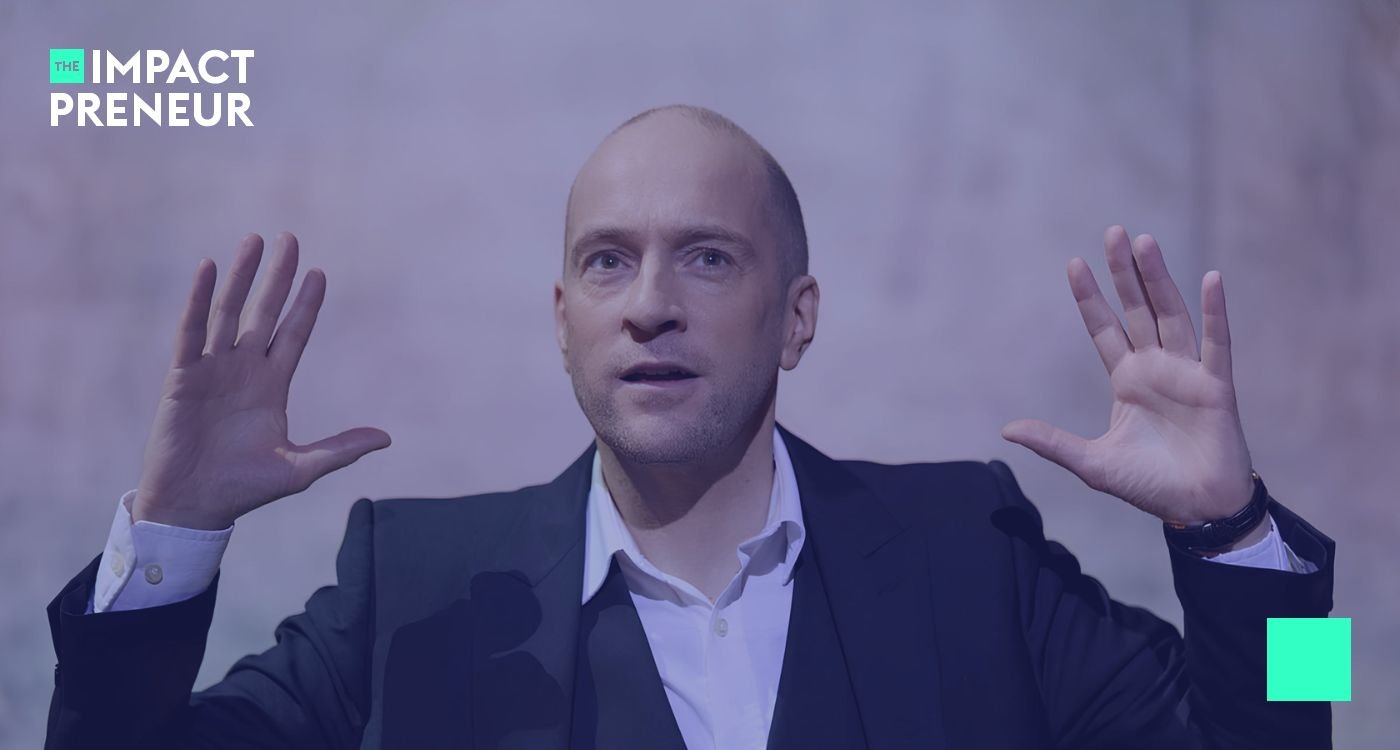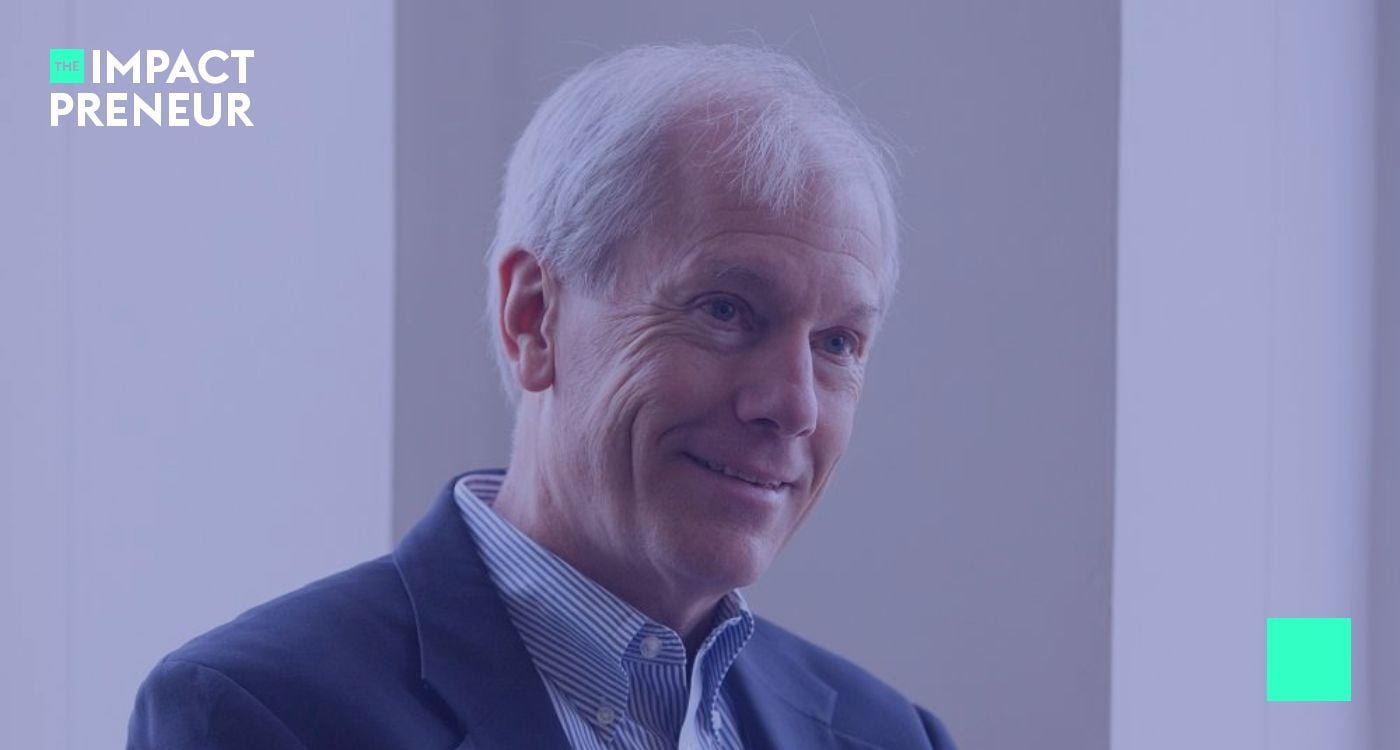Photo: Peter Sage | Source: Yahoo Finance
Have you ever stopped to wonder about the stories we tell ourselves? How often do they align with reality? Picture this: a woman, paralyzed on one side since childhood, moves her arm for the first time in decades. No surgeries, no medical breakthroughs, just a shift in her mental narrative. Astonishing, right? But here's where it gets even more intriguing. What if I told you that our struggles, our anxieties, and even our insecurities could be the keys to unlocking a deeper understanding of ourselves and the world around us?
Quick Bites
- Our perception shapes our reality more than the events themselves.
- Embracing change and uncertainty can transform our life experience.
- The stories we tell ourselves need constant editing to align with our growth.
- Adversity isn't just an obstacle; it's a catalyst for personal evolution.
The Illusion of Control
Imagine controlling your reality with just your thoughts. Sounds like a superpower, doesn't it? But let's get real for a second. How often do we actually have control over what life throws at us? Not as often as we'd like, that's for sure. Yet, here's the kicker: it's not the events themselves that shape our lives, but rather, how we interpret them. It's like watching a magic trick and trying to figure out how it was done. The trick isn't what's important; it's what it reveals about our perception that truly matters.
"The story we tell ourselves is not what's real, it's the psychological component of suffering. Nothing's changed but our relationship to our suffering that's been made to change." - Derren Brown, a renowned figure in the realm of psychological illusion and storytelling, shares his profound insight into the power of perception.
The power of our minds is both a blessing and a curse. We can conjure up scenarios that fill us with dread or paint pictures that uplift us. The choice, surprisingly, is often ours to make. But it requires a shift in focus, from the external to the internal, from what's happening to us to how we're processing it.
This is where the magic lies—not in changing the cards we're dealt, but in reshuffling them in our minds to create a hand we're more comfortable playing. It's a subtle art, one that demands practice, patience, and a pinch of courage. Because let's face it, facing down our inner demons and challenging our long-held beliefs is no small feat.
Yet, the rewards are immeasurable. A life lived in fear of change is a life half-lived. Embracing the unpredictable nature of existence opens up a realm of possibilities previously thought unattainable. It's the difference between being a passive observer in your life and an active participant.
The Power of Perception
Now, let's delve deeper into this idea. Have you ever considered that the limitations we face are often self-imposed? Take anxiety, for example. It's a beast, no doubt. But isn't it also a signal, a nudge to reassess our current path? It's our mind's way of saying, "Hey, something's off here." Embracing anxiety doesn't mean letting it run rampant; it means acknowledging it as a part of our complex human experience. Only then can we begin to see the potential for change.
But acknowledging our anxiety is just the first step. The real challenge lies in acting on this acknowledgment. It's about making a conscious decision to confront our fears, to step into the unknown, even when every fiber of our being is screaming for us to run in the opposite direction.
This confrontation isn't about eradicating fear from our lives—it's about learning to dance with it. It's recognizing that anxiety, fear, and doubt aren't roadblocks; they're signposts, guiding us towards growth, towards becoming more resilient, more adaptable beings.
And let's not forget the role of curiosity in this dance. Curiosity, that insatiable desire to know more, to explore the uncharted territories of our minds and the world around us, can be the perfect antidote to fear. It shifts our perspective from "What if I fail?" to "What can I learn?" turning every experience, good or bad, into a valuable lesson.
The Magic of the Mind
Now, let's talk about magic. Not the pull-a-rabbit-out-of-a-hat kind, but the kind that shows us how easily our perceptions can be manipulated. It's a humbling reminder that what we see isn't always what is. This realization opens up a world of possibilities. If we can be fooled by a simple trick, what else might we be missing? What other realities exist just beyond our perception?
Consider for a moment the art of illusion. It plays on our assumptions, our shortcuts, the mental paths we tread without even realizing it. An illusionist doesn't just trick our eyes; they trick our minds, exploiting the gaps in our attention and understanding.
But here's the beautiful part: by revealing these gaps, illusionists also reveal our potential for growth. They show us that our perception of the world is not fixed but fluid, capable of change and expansion. It's a powerful metaphor for personal development, illustrating that the limits we perceive are often illusions of our own making.
Moreover, this realization empowers us. If we can be so easily misled by an illusion, then surely, we can also mislead ourselves into believing we're incapable, unworthy, or stuck. Recognizing this gives us the power to challenge and change those beliefs.
The Stories We Tell
Here's where it gets personal. Our lives are essentially narratives we've crafted over the years. But how often do we pause to question the accuracy of these stories? Are they full of plot holes, based on outdated information or misconceptions? It's like being the protagonist in our own novel but forgetting we have the power to edit, to rewrite, to change the course of our story.
Every story has its themes, its recurring motifs. Some of these serve us well, propelling us forward with hope and determination. Others, however, trap us in cycles of self-doubt and fear. It's our job as the authors of our lives to identify these themes and decide which ones deserve to be carried forward and which should be left behind.
But rewriting our story isn't just about altering the narrative; it's about changing the lens through which we view ourselves and the world. It's about recognizing that we are more than the sum of our experiences, that within us lies the potential for countless new stories, each as real and as true as the one we're living now.
And let's not overlook the importance of the supporting cast in our personal epic. The people we choose to include in our story, the relationships we nurture and value, can significantly influence the direction and quality of our lives. They can either reinforce our limiting beliefs or challenge us to transcend them.
The Role of Adversity
Consider for a moment the obstacles we encounter. They're not just hurdles to overcome but opportunities to grow, to learn, and to expand our understanding of what it means to be alive. It's through these challenges that we find our strength, our resilience, and, most importantly, our humanity. They're the plot twists that keep our story interesting and ultimately define who we are.
Adversity introduces us to ourselves. It strips away the facades, the pretenses, and reveals our core. How we respond to adversity, the choices we make in the face of it, these are the moments that truly define us.
But facing adversity with grace and courage isn't just about personal triumph; it's about collective growth. Our struggles, shared and understood, can become sources of comfort and inspiration to others. They remind us that we're not alone, that our battles, though unique, are part of the human condition.
Furthermore, adversity teaches us gratitude. It's easy to take for granted the good in our lives until we're faced with the possibility of losing it. Suddenly, the mundane becomes precious, and we learn to appreciate the beauty in the everyday.
The Illusion of Permanence
"Everything changes. That's the only constant. Yet, we cling to the illusion of permanence, of predictability. But what if we embraced change instead?" - This contemplation by Derren Brown, echoes the sentiment that embracing the fluidity of life can radically alter our perception and experience of it.
What if we saw each ending as the beginning of something new? It's a shift in perspective that can transform the way we experience life, turning fear of the unknown into curiosity and excitement for what's to come.
Embracing change requires a certain level of detachment, the ability to let go of the familiar and step into the unknown with open arms. It's a daunting task, but it's also where growth happens. The more we resist change, the more we deny ourselves the opportunity to discover new aspects of ourselves and the world.
Change also reminds us to live in the present. The future is uncertain, the past is gone, but the now is alive, vibrant, and filled with potential. By focusing on the present, we anchor ourselves in the reality of our experience, not the shadows of what was or the mirages of what could be.
Lastly, change teaches us resilience. Each time we navigate through a period of transition, we come out the other side stronger, more adaptable. We learn that we can endure, that we can thrive, even in the face of uncertainty.
Unlocking Your Mind's Potential
So, what's the big secret? It's simple, really. Our minds are powerful tools, capable of shaping our reality in ways we can hardly imagine. But it requires awareness, a willingness to question our perceptions, and the courage to embrace the unknown. Life isn't about finding the right answers but asking the right questions. And sometimes, the most profound discoveries lie not in what we see, but in how we choose to see it.
Take Action: Your Path to Perception
- Reflect on Your Narrative: Take time to examine the stories you tell yourself. Are they serving you, or is it time for a rewrite?
- Embrace Uncertainty: See uncertainty not as a threat, but as an invitation to explore new possibilities.
- Challenge Your Perceptions: Actively seek out experiences that challenge your assumptions about the world.
- Cultivate Mindfulness: Practice being present. The more aware you are, the more control you have over your narrative.
- Celebrate Adversity: View obstacles as opportunities for growth and transformation.
In the end, unlocking the secret power of your mind isn't about mastering some arcane knowledge or performing mystical rituals. It's about opening yourself up to the full spectrum of human experience, with all its mysteries, its wonders, and yes, its illusions. Who knows what realities you'll discover when you start to look beyond the surface?
Questions on the Topic
Q: How did Derren Brown find his way into the world of magic and mentalism?
A: A young Derren Brown, fresh-faced and curious, wanders into a hypnosis show during his university days. That night, sparked by the mesmerizing performance, he makes a vow to himself, "I'm going to learn how to do this." Unlike the rest of us who might say, "I'm gonna start the gym tomorrow," Derren actually followed through. He dove headfirst into books, magic, and the art of suggestion. It wasn't just a hobby; it became his calling. And just like that, a star was born.
Q: How does Derren feel about using his skills for less...ethical endeavors?
A: Ever the moral compass, Derren steers clear of the dark arts of his trade. Sure, he could probably convince you to hand over your wallet with a smile, but where's the fun in that? Derren's all about using his powers for good – or at least for entertainment. It's like Spider-Man says, "With great power comes great responsibility." Derren's not in the business of pulling a Jedi mind trick for personal gain. He's more about the wow factor, leaving you amazed, not shortchanged.
Q: Can Derren Brown really read minds, or is it all just smoke and mirrors?
A: Okay, lean in close because this is where it gets juicy. Derren himself would chuckle at the idea of "mind-reading" in the mystical sense. What he does involves a profound understanding of psychology, body language, and the art of suggestion. It's like he's playing chess, but with human thoughts. So, while it might feel like he's reading your mind, what he's really doing is showcasing the power of the human psyche. Magic? Science? A bit of both? You decide.
Q: What's Derren Brown's take on the supernatural and psychic abilities?
A: Derren respects the craft of magic too much to blur the lines with claims of supernatural powers. Instead, he uses his platform to demystify the "psychic" phenomena, showing us how easily our perceptions can be twisted and turned. Through his performances and exposés, he champions the idea that understanding is far more magical than any claim of communicating with the other side.
Q: Can anyone learn to do what Derren Brown does?
A: While we can all learn a trick or two, Derren's level of mastery is akin to climbing Mount Everest in flip-flops. It's not impossible, but boy, is it a steep climb. Derren combines natural talent with years (decades, even) of practice, study, and an innate understanding of the human psyche. It's like trying to bake a Michelin-star cake without knowing the difference between baking soda and baking powder. Start small, dream big, but maybe leave the mind-reading to Derren, eh?



